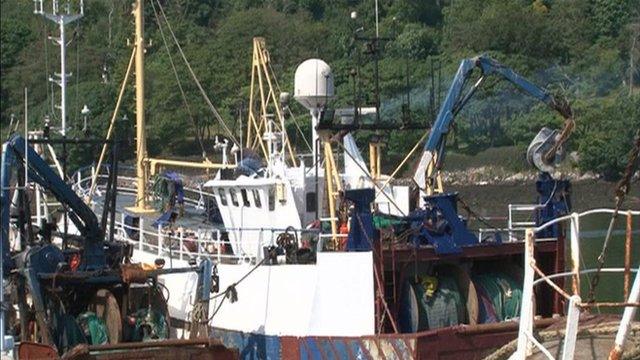Orkney council to look at proposals to become territory of Norway
- Published
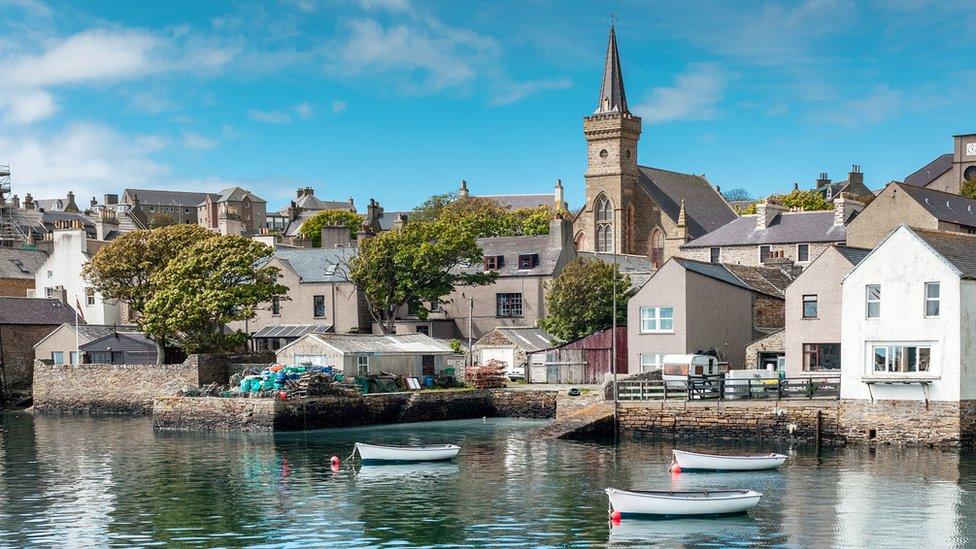
A previous vote in 2017 did not back full independence for Orkney
The Orkney Islands could change their status in the UK or even become a self-governing territory of Norway under new proposals.
A motion will go before the council next week to investigate "alternative forms of governance".
Council leader James Stockan said Orkney does not get fair funding with its current relationship within the UK.
He wants to look at Crown Dependencies like the Channel Islands and overseas territories like the Falkland Islands.
He suggested another possible future could be like the Faroe Islands - which is a self-governing territory of Denmark.
Councillor Stockan told BBC Radio Scotland there were many areas where Orkney was being "failed dreadfully" by both the UK and Scottish governments.
He said: "We are really struggling at the moment, we have to replace the whole ferry fleet which is older than the CalMac fleet.
"We are denied the things that other areas get like RET (Road Equivalent Tariff) for ferry fares.
"And the funding we get from the Scottish government is significantly less per head than Shetland and the Western Isles to run the same services - we can't go on as we are."
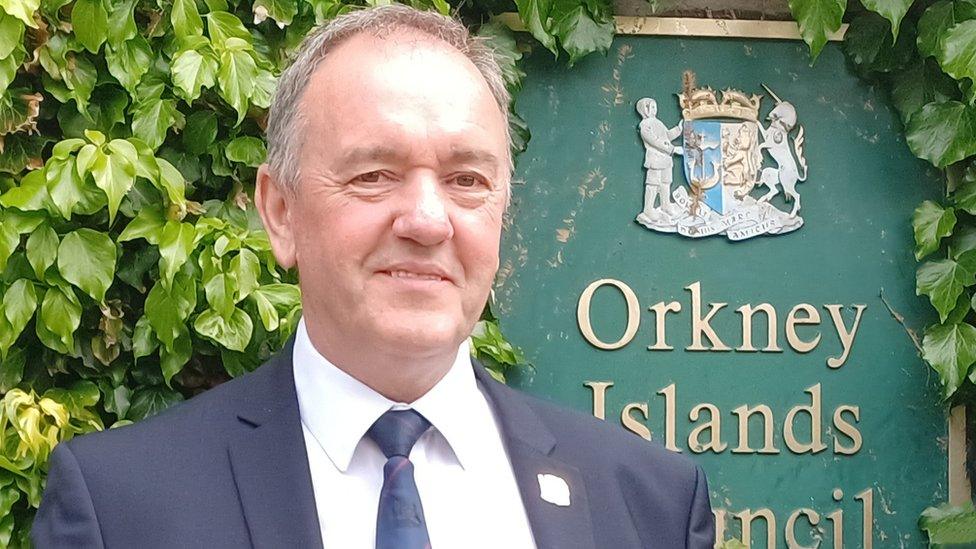
Council leader James Stockan says Orkney does not get fair funding within the UK
Mr Stockan said an in-depth study of the finances had never been carried out.
"We know that we have contributed for the last 40 years through north sea oil, and the dividend we get back isn't sufficient to keep us going," he said.
"We've got a unique opportunity right at the heart of all the wind projects round our waters."
Mr Stockan is urging councillors to back his idea to find new ways for Orkney to get greater financial security and economic opportunities for Orcadians.
Orkney Islands Council previously voted in 2017 to look at whether the islands could have greater autonomy.
While they wanted to have a "stronger voice", they did not back full independence for Orkney.
Mr Stockan's motion also cites British Crown Dependencies Guernsey, Jersey and the Isle of Man as potential models to follow.
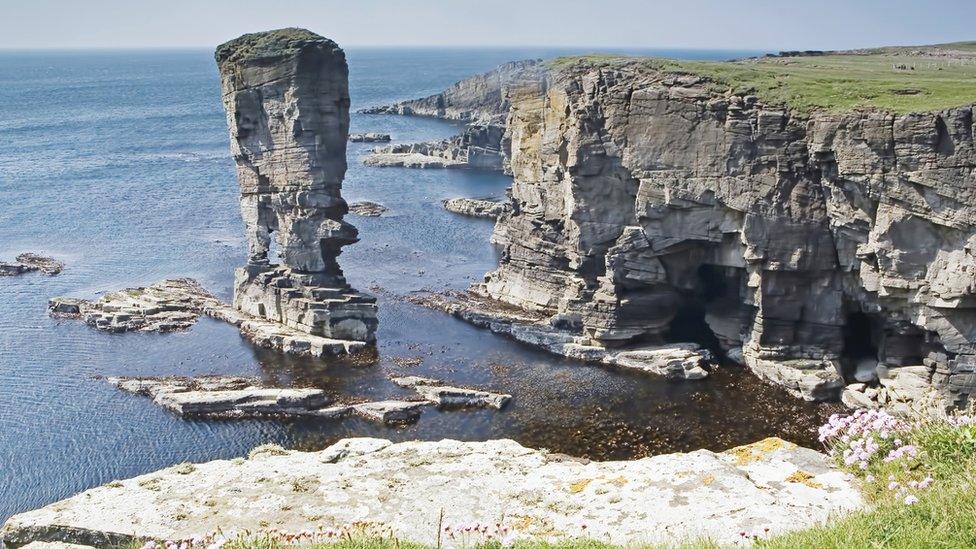
Orkney was held under Norwegian and Danish control until 1472
But he warns that a large amount of staff resource would be needed to investigate the options and consult the public.
"The council will decide whether it supports this motion and from there we will take our time, because we don't want to do this emotionally," he said.
"We want to look at all the practical implications and then we'll evaluate the results.
"We are looking for the very best position for future generations and our place in the world.
Mr Stockan also suggests that the council should investigate how Orkney could secure a "Nordic connection" with Denmark, Norway or Iceland.
'Deep cultural relationship'
Orkney was previously held under Norwegian and Danish control until it became part of Scotland in 1472.
The islands were used as security for the wedding dowry of Margaret of Denmark, the future wife of King James III of Scotland.
Mr Stockan said: "We were part of the Norse kingdom for much longer than we were part of the United Kingdom.
"On the street in Orkney people come up and say to me when are we going to pay back the dowry, when are we going back to Norway,
"There is a huge affinity and a huge deep cultural relationship there. This is exactly the moment to explore what is possible."
The UK government said it was providing £2.2bn to level up UK communities, including £50m to grow the economies of Scotland's Islands - including Orkney.
A spokesperson said: "We will always be stronger together as one United Kingdom, and we have no plans to change the devolution settlement."
The Scottish government said in 2023-24 Orkney Islands Council would receive £89.7m to fund services, with an extra £4.6m from an increase in council tax by 10%.
A Scottish government spokesperson said it was "committed to supporting island communities".
The motion will be discussed by Orkney Islands Council on Tuesday.
Additional reporting provided by Andrew Stewart at the Local Democracy Reporting Service.
Related topics
- Published28 February 2017
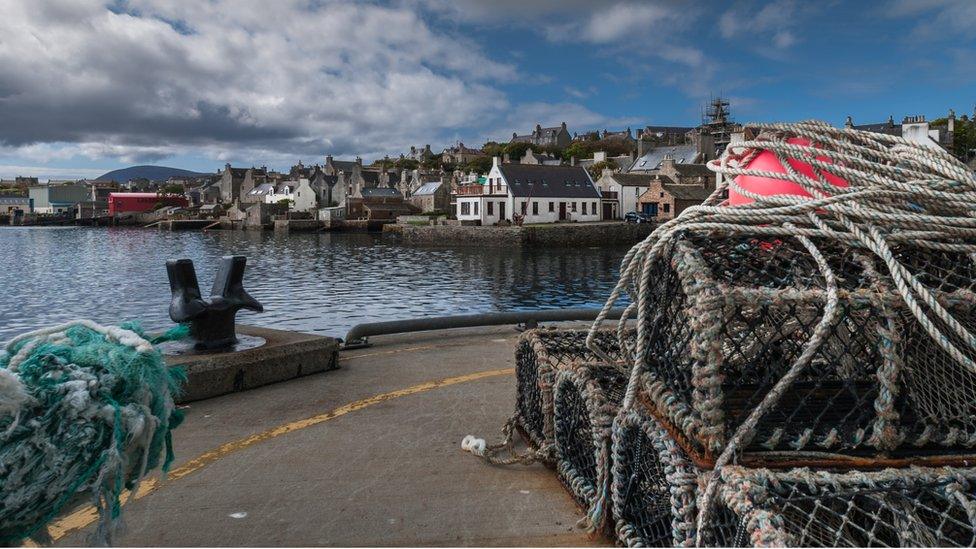
- Published24 July 2013
